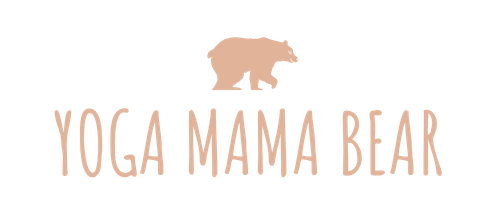Discovering and telling your truth
We're making our way through the yamas and niyamas, the yogi's eight-limbed path for living a meaningful, peaceful life. Last week I shared a bit about the first yama, ahimsa (non-harming), and what it means to me.
The second of the five yamas in the Yoga Sutras is satya (pronounced saht-ee-a). This week in my classes, we'll be flowing with the intention of satya — focusing on chakras 4, 5 and 6 (heart, throat and third eye).
Put simply, satya means truthfulness.
Practicing satya means acting, speaking and thinking in a way that is truthful … and choosing these actions, words and thoughts in a way that will do the least harm and the most good. (This is very much tied to ahimsa.)
Keep in mind that all the yamas are guidelines of what NOT to do. They are restraints. So satya is about restraining.
Instead of blurting out the first thing that pops in your head, satya about taking a step back. Being purposeful in your speech. Considering how these words will affect the people around you and yourself.
In this way, satya is more than simply telling the truth.
Because it might be truthful to say that I think your kid’s drawing is ugly. But I wouldn’t say that because it would cause harm. We call these “white lies” but you can still be truthful in your words. For example, I might say “She’s definitely creative,” or “She seems to have an interesting point of view” rather than “Yes that’s the most beautiful drawing I’ve ever seen."
(Source)
In that example, it’s important to note that this was my truth, not the truth. This was my opinion on your kid’s drawing. It was not a fact. You might think it is the most beautiful drawing you’ve ever seen. In fact, you probably do since it’s your kid’s.
When practicing satya, we can begin to notice the difference between fact and opinion. A lot of times, things are up for interpretation. My car is silver. That is a fact. My car is a mess. That’s up for interpretation. The car isn’t a mess. It just doesn’t meet my desired level of cleanliness right now. To some people, my car might be clean.
This helps us remove labels. The fact that my car doesn’t meet my needs right now isn’t “bad.” I am not less of a person for it. It just is.
Here’s another example.
I used to tell myself lies all the time.
You might lie to yourself, too. I would tell myself that I wasn’t good enough. That I was weak. That I was fat and ugly. Sound familiar? These are lies I think a lot of us have told ourselves at one point or another.
I was putting labels on myself — accepting them as facts when they were just lies. Lies that had become so embedded in my brain that I believed them to be true.
“To be nobody but myself — in a world which is doing its best, night and day, to make me somebody else — means to fight the hardest battle any human can fight, and never stop fighting. ”
Does that make sense?
Satya can be confusing. But I think the most important thing I gain from drawing awareness to satya is awareness of the labels I place on things.
Let’s talk about how this relates on the mat.
If I can’t get into a yoga pose it might be tempting to label myself as a “failure” when in fact I’m not a failure.
In the same day I might have had great success in another pose. That doesn’t mean I’m “winning.”
Whether I nail a pose or not, it just is. No labels needed. No justifications.
Removing these labels — “good” labels and “bad” labels — has helped me get more in touch with my nature.
Without labels in my way, I am able to listen to my intuition — which I couldn’t hear when my mind was screaming judgmental labels.
It’s something I still practice. My truth evolves, it’s not a stagnant thing that I only had to find once. I continually strive to listen to and honor my internal wisdom and share my truth with others.
You probably know people who are really good at this. We call them “genuine” or “authentic.” They know who they are and they share their truth in a way that doesn’t harm others. You respect their opinion because you know they are telling the truth. They don’t seem to waiver.
Here’s a challenge to take with you this week.
Notice when you label something as “bad” or “good.” Is it really bad or good? What makes it bad or good? Is it bad or good because of how you’ve been taught by others? Or is it bad or good because that’s your truth? What does your heart think?
Question everything. You don’t have to look outside to find answers — your truth is already inside your heart. You just have to listen.
“A bird doesn’t sing because it has an answer. It sings because it has a song.”



It’s not just us introverts who can benefit from throat chakra work. It’s also the super chatty ones, the “over-sharers” and everyone in between.